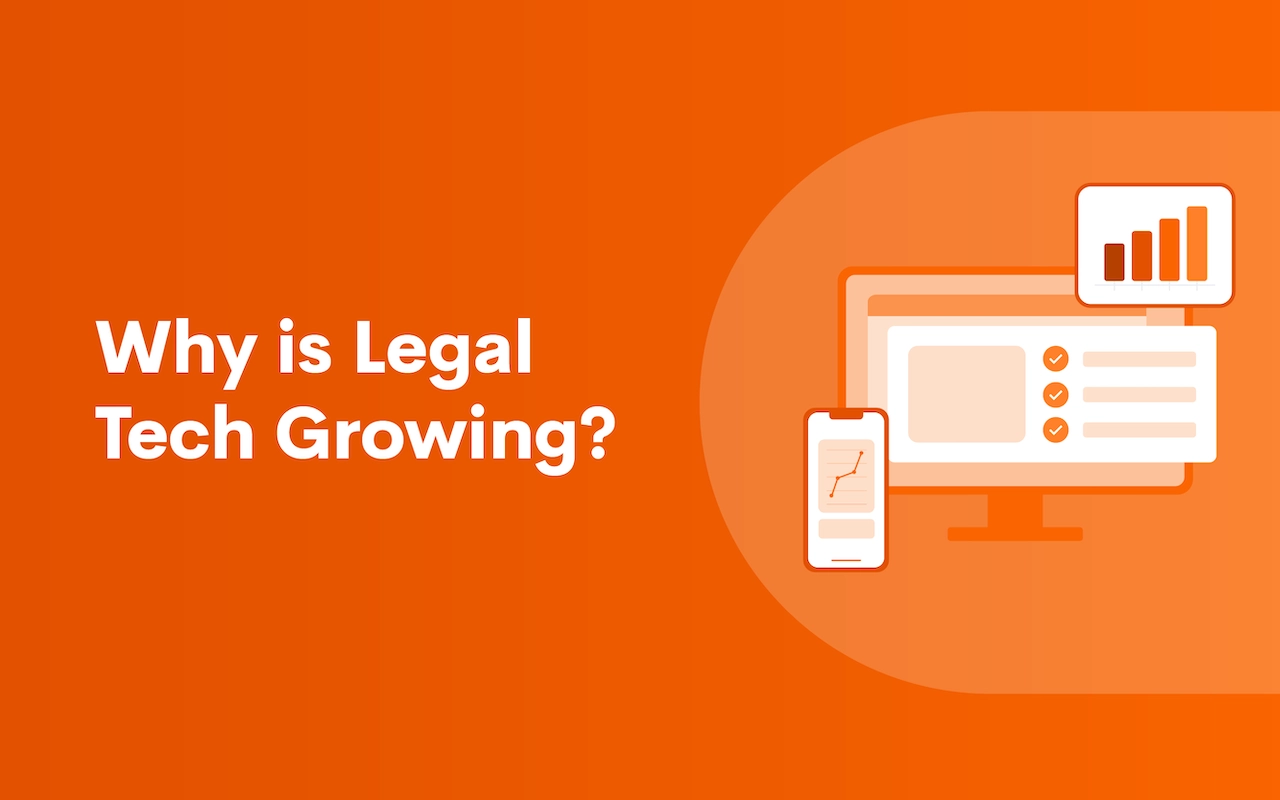Why is Legal Tech Growing?

The rapid evolution of technology has sparked a transformation in the legal industry. To remain competitive, today’s lawyers must adopt legal software to manage the growing complexity of legal matters, meet client demands. Because the need for tools that automate repetitive tasks and workflows continues to rise, the future of legal technology remains bright.
What is the legal tech industry?
The legal tech industry incorporates technology, software, and innovative solutions to address challenges and improve efficiency within the legal sector. Legal tech encompasses a wide range of tools and applications designed to streamline legal processes and enhance the delivery of legal services. Some examples of legal tech tools include legal accounting software, document automation, and appointment scheduling systems.
How big is the legal tech industry?
The legal tech market is vast and growing by leaps and bounds — in 2022 alone, the global legal tech market was valued at $23.45 billion and is expected to grow at an annual rate of 9.1 percent from 2023 to 2030. The industry is experiencing significant growth in artificial intelligence (AI), smart contracts, and blockchain technologies, and inflation has also played a key role in legal tech adoption. According to Gartner, 63 percent of legal decision-makers plan to increase legal tech investments to battle high inflation rates.
Is legal tech a growing industry?
Yes, legal tech is considered a growing industry. The increasing adoption of technology across various industries, coupled with the potential benefits tech provides to those working in the legal field, has fueled the growth of legal tech.
Why legal tech is growing
Why is technology important in the legal field? The legal tech industry is a growing and dynamic sector experiencing significant growth, driven by technological advancements, changing client expectations, and the need for increased efficiency and effectiveness. Several factors contribute to the industry's growth:
- Efficiency and cost savings: Legal tech solutions promise increased efficiency, automation of routine tasks, and significant cost savings for law firms and legal departments.
- Increased complexity: Legal work has become more complex and data-driven. Legal tech tools, such as AI and machine learning, help analyze large amounts of information and support legal professionals in decision-making.
- Access to justice: Legal tech initiatives often improve access to justice by making legal services more affordable and accessible to a broader range of individuals and businesses.
- Remote work: The COVID-19 pandemic accelerated the adoption of digital tools in the legal sector as remote work became more prevalent, further enhancing the impact of technology in law.
The growing importance of technology in law has fueled the growth of legal tech, which has become critical for firms of all sizes. Legal tech helps large and small law firms (and all those in between) improve efficiency, enhance client services, and stay competitive in a rapidly evolving legal landscape.
How technology is used in being a lawyer
Lawyers use legal technology to enhance their practices, streamline processes, and improve overall efficiency. Here are some examples:
- Document automation: Lawyers use document drafting software to create, edit, and manage legal documents, such as contracts, pleadings, and agreements.
- Practice management: Practice management software assists lawyers in organizing and managing case-related information, deadlines, and client communications.
- Time and billing software: Lawyers use time-tracking and billing software to monitor billable hours, generate invoices, and manage financial transactions.
- Legal analytics: Reporting and analytics tools help lawyers gain insight from legal data, enabling informed decision-making and strategic planning.
- Client relationship management (CRM): Lawyers use legal CRM software to manage client relationships, track client interactions, and maintain organized client records.
By incorporating legal technology into their practice, lawyers can boost efficiency, cut costs, improve client relationships, stay competitive in a rapidly evolving legal landscape, and more.
Is legal technology the future?
Future legal trends indicate that legal technology is the future. The industry is experiencing momentous growth and innovation, and experts forecast that in-house legal departments will earmark 12 percent of their budgets for legal tech by 2025. Law firm technology trends indicate that tech has transformed the industry and will continue to do so as more and more firms adopt these tools, prompting some to ask: Are lawyers likely to be replaced by AI? The answer? Not likely. Although AI and other legal tech tools have drastically transformed the legal industry, the role of lawyers involves complex decision-making, interpretation of sophisticated information, and human-centric skills that technology cannot imitate.
Lawmatics legal tech helps law firms grow
Legal tech is booming—is your firm ready to jump on board? To learn more about how Lawmatics’ legal tech will prepare your firm for the future in a rapidly advancing legal industry, request a demo today.


